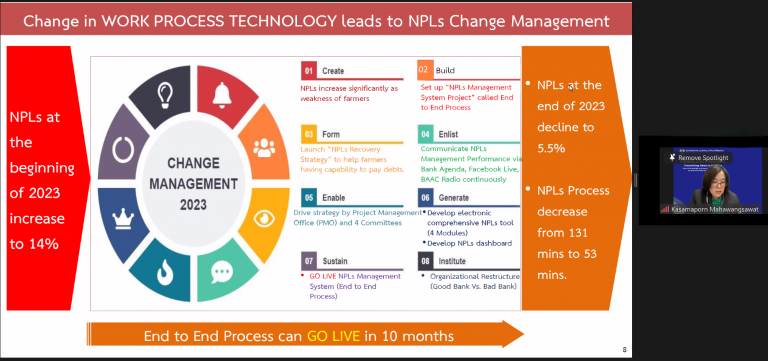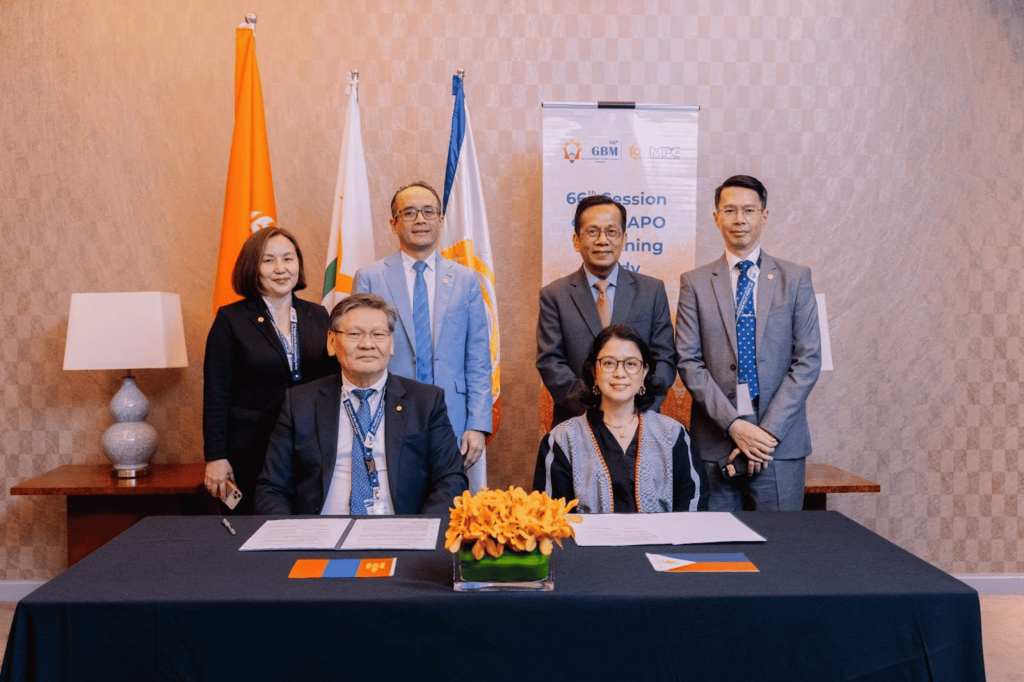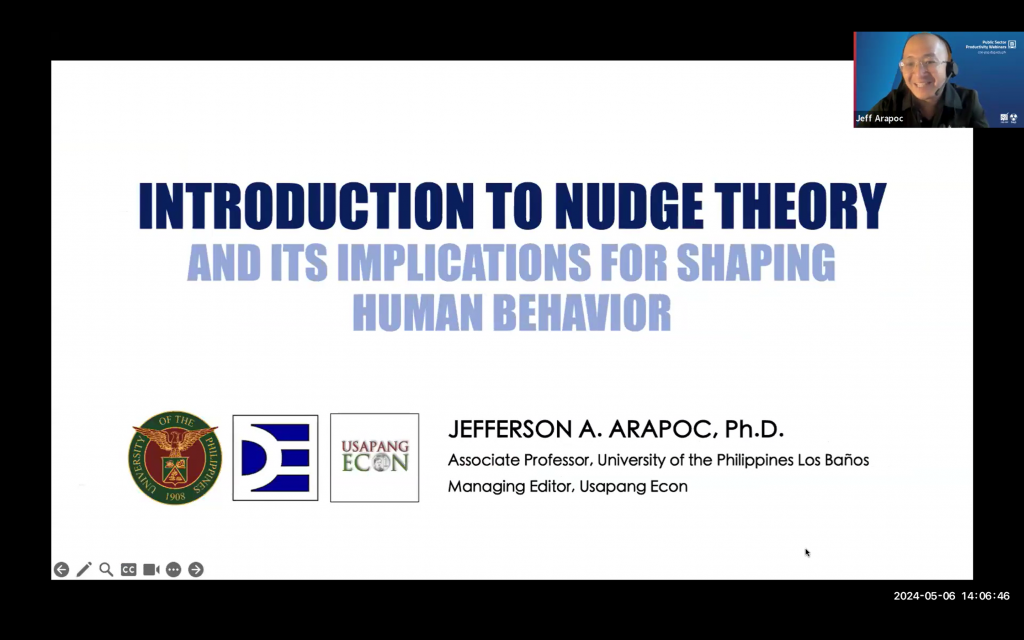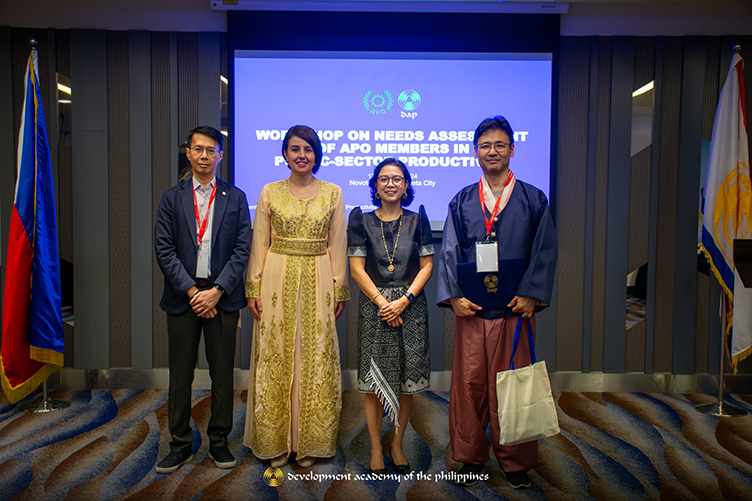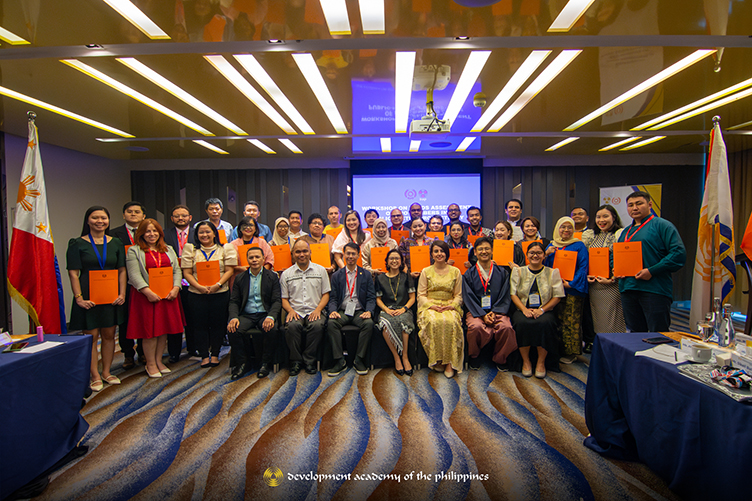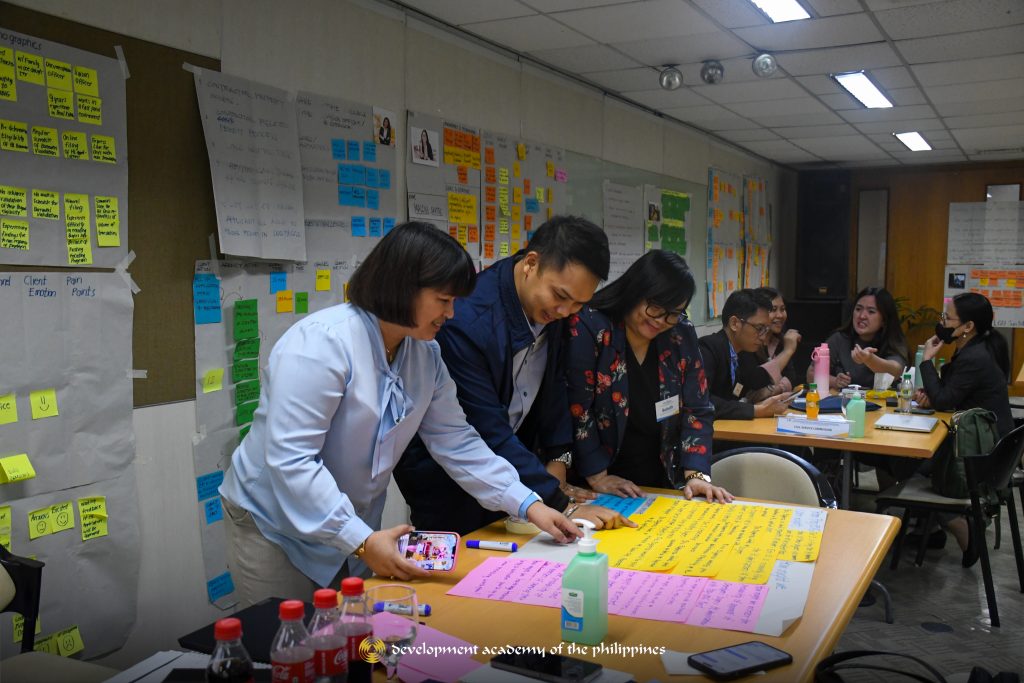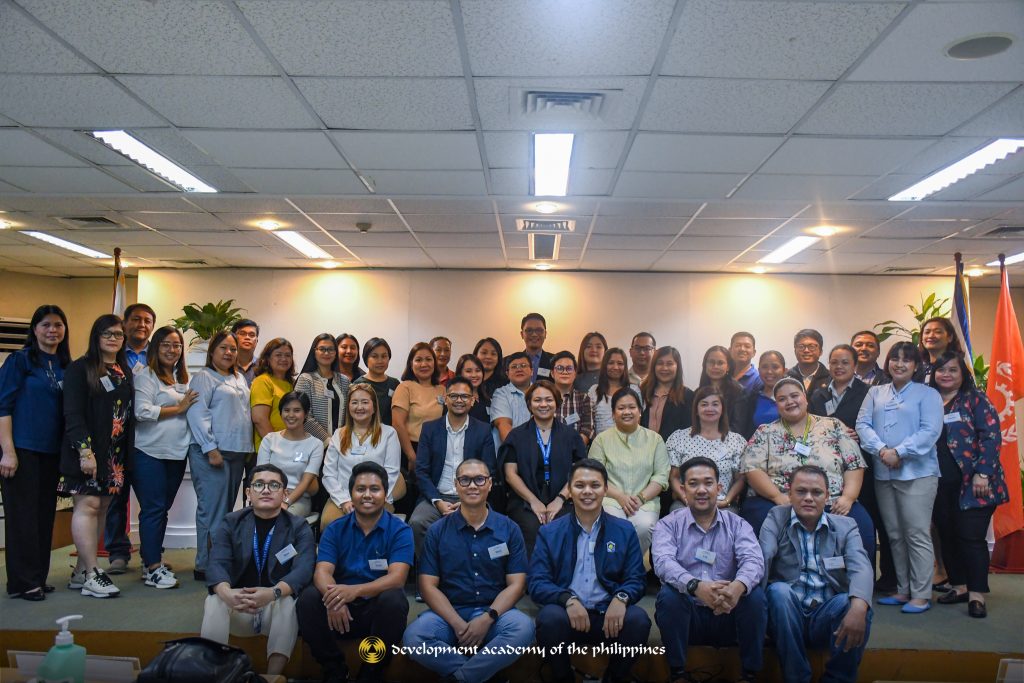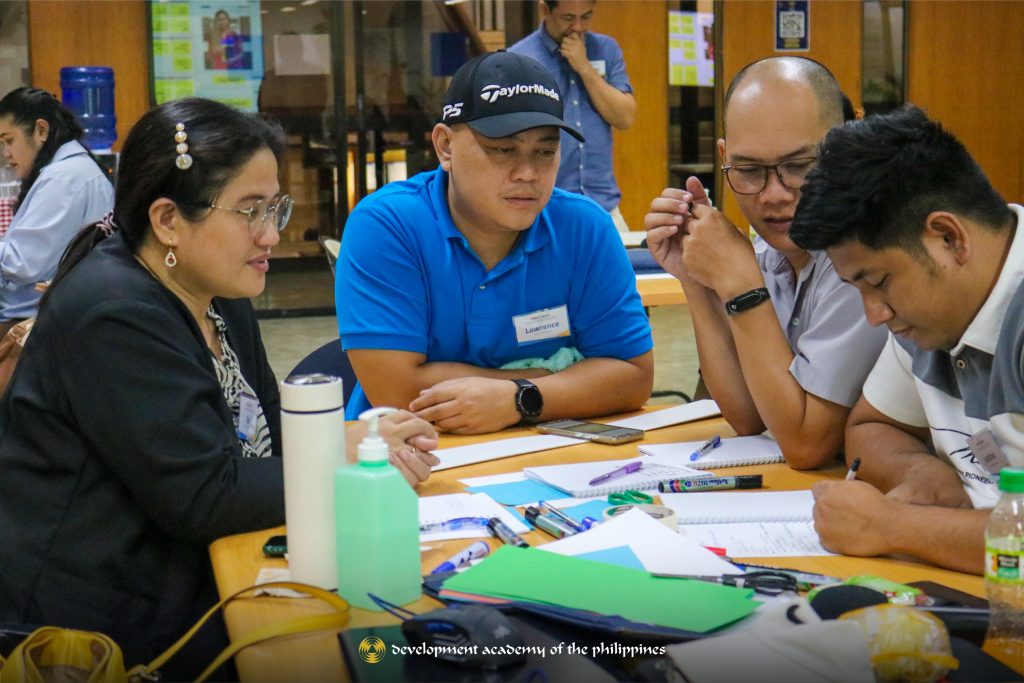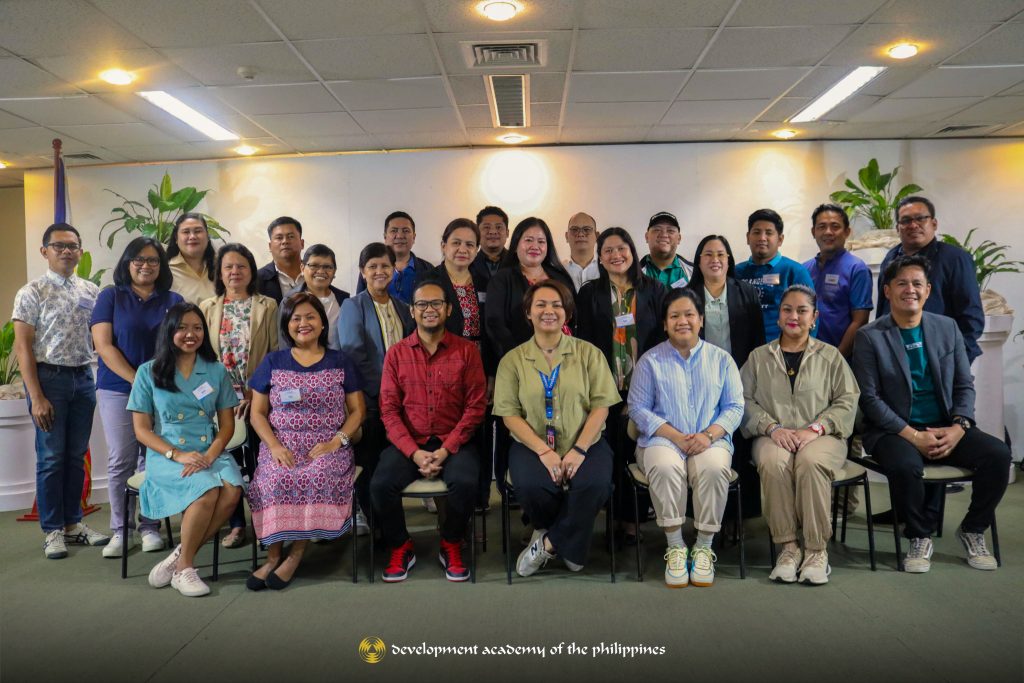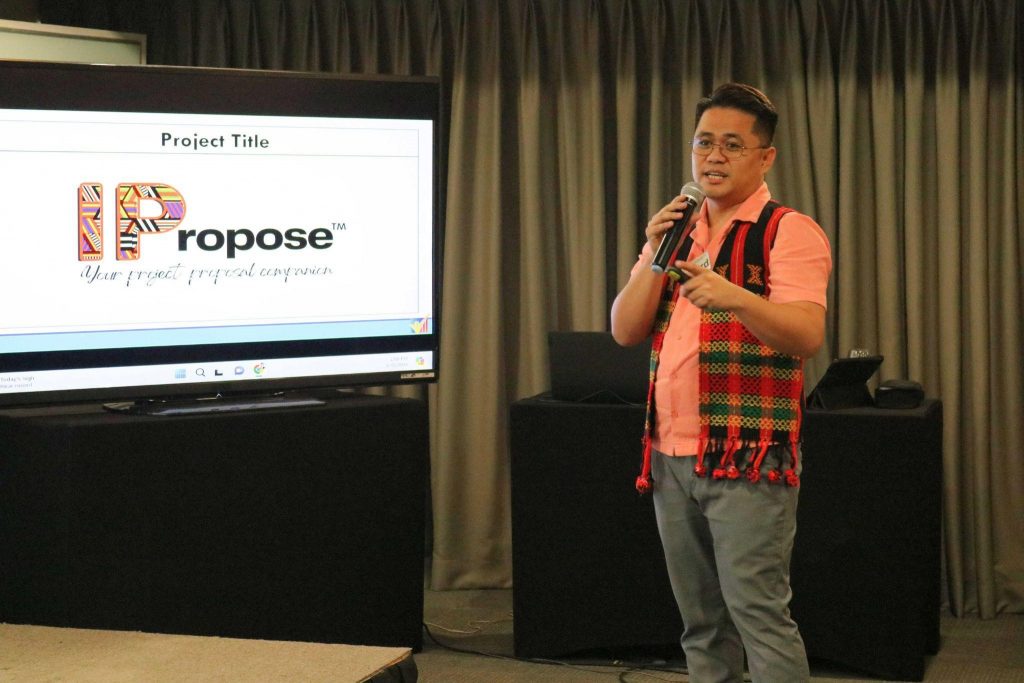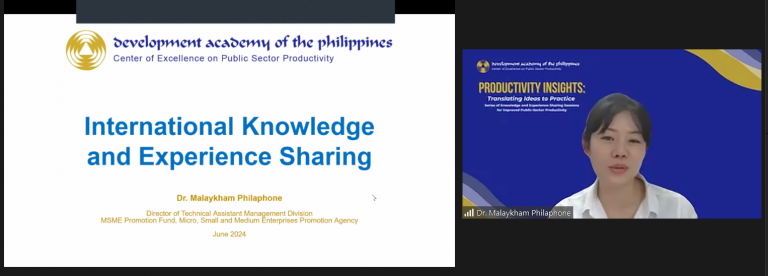
The third virtual session of Productivity Insights, conducted by the Development Academy of the Philippines-Center of Excellence on Public Sector Productivity, showcased the transformative impact of the 5S workplace organization methodology on performance management within the Micro, Small, and Medium Size Enterprises Promotion Agency (MSMEPA) in Lao PDR. The 5S methodology comprises seiri (sort), seiton (set in order), seiso (shine), seiketsu (standardize), and shitsuke (sustain).
Held on June 13, 2024, the session had over 300 participants from various national and local government agencies and state universities. Dr. Malaykham Philaphone, director of the Technical Assistance Management Division at the MSME Promotion Fund under the Ministry of Industry and Commerce, served as the resource person.
Dr. Philaphone discussed the challenges MSMEPA faced in the application process and grant approval timeline, including limited capacity and delays in receiving assistance. These issues prompted a collaborative approach among MSME-promoting organizations, government sectors, and business associations to find solutions.
She explained that, in addition to conducting training and capacity building, MSMEPA implemented the 5S methodology to streamline processes. This involved sorting and simplifying regulations, removing unnecessary documents, organizing through electronic services, enhancing transparency, standardizing practices, and implementing training programs. Beyond adopting 5S, the division used stakeholder feedback to refine processes further.
Dr. Philaphone emphasized the establishment of standard operating procedures and training programs to ensure consistency and efficiency in evaluating and approving grants. Continuous monitoring and evaluation mechanisms were also put in place to track the effectiveness of these reforms. She noted that the 5S methodology led to significant improvements, including a notable increase in application volume and a reduction in processing times, thereby providing MSMEs with quicker access to technical assistance funding and fostering innovation and entrepreneurship.
Additionally, Dr. Philaphone highlighted the importance of understanding stakeholders, using data-driven approaches, recognizing knowledge gaps, and managing change in MSME support initiatives. She also addressed the need to manage transition issues and overcome resistance to change.
Productivity Insights is a series of sessions that share best practices from local participants and APO-member economies to enhance innovation and productivity in the public sector.
This article was originally posted on: https://dap.edu.ph/third-productivity-insights-showcases-5s-transformative-impact-on-lao-pdrs-msmepa/

